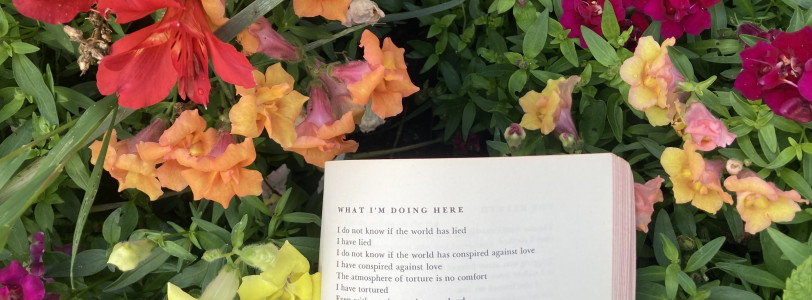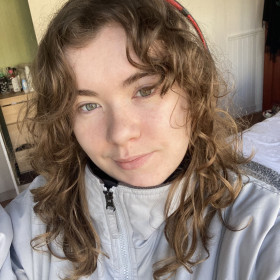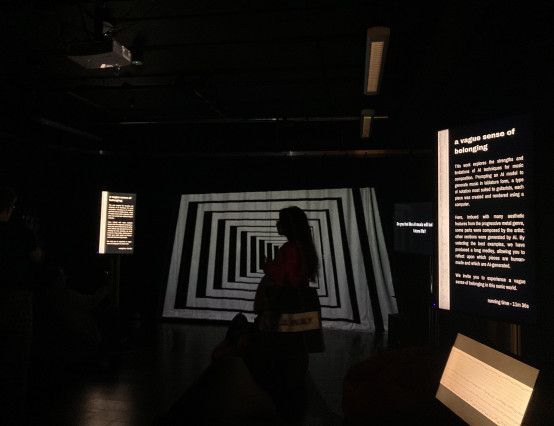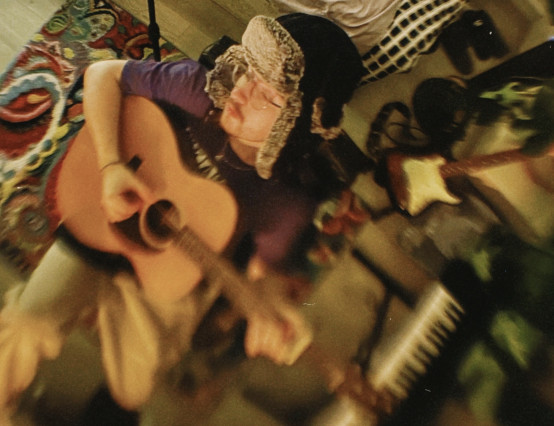The power of poetry has been emphasised time and time again throughout history, and some of the most influential writers in living memory are poets. In an interview for Sheridan College, multi-disciplinary artist Gary Barwin states that poetry stands out because of its musicality, and it “is great at asking questions, at destabilising and making us look at things in a different way, incorporating a diversity of voices of ways of thinking.”
Although I have tried to write poetry, I find that writing non-fiction pieces comes more naturally to me. I admire those of us who are able to create beautiful work straight from their imagination. It seems to be a very personal process in comparison to other forms of writing, ruled mostly by our humanity. Therefore, poetry that is created without this crucial element seems somewhat redundant. As Sionil Jose has said, “Poetry is emotion, passion, love, grief—everything that is human. It is not for zombies by zombies.” With this in mind, I wanted to find out more about how young poets in particular felt about AI-generated art and poetry.
Nell Basley, a Drama, Theatre and Performance student in their early twenties, creates poetry exploring fluctuation, authenticity and a non-binary relationship with the body. Nell tells me that ‘NB’ is the goblin that resides within their brain to create art. They dabble across different mediums, but their main focus is on poetry.
Elly (also known as Aphrodites Teachings) is a Brighton-based poet exploring themes such as politics, body positivity, love and sex via the female gaze. In her poetry, Elly shows love to all of the unlovable parts of her body through romanticisation and rewriting feminist narratives by openly talking about sex as a queer woman.
Although these interviews were conducted separately, I thought it would be interesting to explore their creative process, inspirations and outlooks side by side.
What drew you to creating poetry?
Nell Basley: It’s stereotypical to say but I have always been writing. As a child, I was mainly re-churning the media I was consuming at the time, but with my own twist. Then when I was at college (around 16 years old) I began writing poetry because I couldn't connect to the classic content we were studying in my A-level English Literature class. The styles of the ‘greats’ moved me, but also irritated me and felt disconnected from how I experienced the world. So, I decided to create the work I wanted to see: disentangled from poetic elitism, full of subversive beauty and an intersectional perspective.
Elly: Growing up I really lived in my head- I used to create songs and fantasy lands as a child, and if I wasn't drawing/writing them in my notepad at home I was doodling them into my school book margins. I really like to see beauty in all things; having grown up in the Norfolk countryside I’ve always felt inspired by nature.
Where do you find inspiration?
NB: Poetry acts as an outlet to help me decipher my view of the world, with all its joys and complexities. Therefore, my work is intrinsically tied to my experiences and emotions. However, the lyrics of particular musicians influence me, more than poetry in fact. Examples include: Amy Winehouse, Little Simz and Greentea Peng.
Elly: I'm mainly inspired by the landscapes of Brighton (my current home) and Norfolk where I was raised. I don’t actually read much poetry for a poet, but I have always read fantasy books and fairytales well into my teens. I’ve always loved English and Irish fairy stories, as well as Greek Mythology. I love the aesthetic of beauty and tragedy, or something star-crossed. My other inspirations include the human body and fashion - shape, texture, and movement.
Describe your creative process
NB: My process isn’t set in stone because I don’t like to restrict my creativity with set rules, but the habits I do have help me to write as freely as possible. For example, the timescale of drafting varies and depends on my frame of mind. I like to pause my process and continue with life, to prevent fiddling with ideas when they are fresh. Once I am ready, I complete my editing routine, which involves writing in a separate notebook in pencil to find my structure.
Elly: I'm definitely more of an emotional writer than a methodical one. Most of my poetry comes from a line or image that pops into my head based upon how I feel, and I just follow the thread until its end.
Sometimes it rhymes, sometimes it doesn't, sometimes it's two lines or 50. I've never studied poetry so any rhythm or form is whatever has come naturally to me. That said, some of my favourite pieces of my own work came from a political prompt. I really enjoyed the challenge of forcing a rhyme and being creative on topics I don’t typically write about - like the economy!
What would you consider to be your biggest achievement so far?
NB: Last year I was lucky enough to be chosen to write a chapter in a book, which is something I never thought would happen! Becoming a Poet: Young poets’ stories of composition and creative development is due to be published in 2024 by Bloomsbury.
Elly: Any of my poetry gigs, or interviews. It still amazes me that people want to hear my poetry or my opinions. I really am very proud of the poetry I wrote for the Lewes Labour Party. I was given the topic of ‘visions' and wrote throughout the event based on what the speaker’s vision of a reimagined society had inspired in me. I felt like the energy of the room really brought out so much of my creativity - it ended up being one of my favourite poems.
As a young creative, have you faced any barriers when trying to access the industry?
NB: I never feel like I’m doing enough. There’s always an event you could be attending, content to be shared and networking to be done. I struggle to find balance, because my poetry is very much an organic process for me and I don’t want to force myself to write it. But the constant grind of social media is enough to make us all feel inadequate I think, so I try to manage my relationship with it.
In terms of access, I don’t enter poetry competitions because I can’t afford to. Before I was a student I was working full time and couldn’t fathom spending my money on something and possibly only receiving rejection in return. However, recognition within these competitions do verify you as a creative…
Elly: Poetry itself is not the biggest industry out there and it is underfunded compared to other creative industries. I think a lot of gigs go to Instagram poets who have large followings, who already have the time and money dedicated to publicising themselves, whether that’s through writing books or regular posting, having their own podcasts etc. I’ve gotten all of my gigs through word of mouth or meeting people at poetry events.
Do you enjoy any forms of AI artwork?
NB: I enjoy AI generated visuals, they seem bizarre and otherworldly.
Elly: I go out of my way to avoid AI artwork – I know artists put so much soul into their work it feels wrong to consume what I understand is essentially ‘stolen’ art. That said, I see a lot come up on my Instagram explore page - specifically @chaosdreamland, who I find interesting. It’s all cool femme pink, space-age vintage fever dream energy. Kind of how I imagine the inside of my head to look. That being said, I don’t interact with the content as much as possible.
Is AI something that you are concerned about when it comes to the creative industry?
NB: Not at the moment, maybe I’m just out of the loop? But I heard Charlie Brooker experimented with writing a Black Mirror episode with ChatGPT, apparently it was rubbish though, so I don’t feel too threatened yet.
Elly: It really is. To scrape millions of images that have taken hours to create by real human artists trying to make a living and put it into a machine that spits it all out into a few words is unethical. Money stops flowing in multiple directions towards artists and instead in one direction to the head of whichever company ends up having the monopoly. In its current stage, AI is still imperfect and AI art is still clearly made by AI, so it is easy to avoid in my opinion. But that will change very quickly, and soon I’ll probably be consuming AI art without even knowing it.
Do you think AI can be used as a tool to enhance artwork, why or why not?
NB: Sure it can, I believe that utilising different mediums creates more variation within art. However, I do think it’s important to question our reliance on AI too. I went to a lecture in 2019 called ‘AI: The End of Society?’ to write a blog for the Young Norfolk Arts Collective and it provided a lot of insight for a seventeen year old me that had no knowledge on the subject. I left the lecture aware of the biases AI has due to its developers and how saturated my generation is in their own data. In retrospect, this lecture led me to have quite a distanced and suspicious attitude towards AI in general.
Elly: It definitely can be – that doesn’t mean it should be. With the way capitalism works, AI gives people a leg-up to be at the forefront of the market. A quick way to come up with an article before your deadline, a commission from your client can be cheaper because it’s gone from 4 hours to 1, all of your uni essays are written by a computer so you can get your degree without going to lectures. It helps people who may not be as creative or skilled succeed and creates convenience and ease, but it harms other people's livelihood in the process (not to mention the act of creativity in the first place).
Without some serious AI laws I think creatives are about to be deeply screwed out of the economy – like artists don’t already have it hard! I think it’s really important that people are talking about this, and putting pressure on international governments to make copyright and intellectual property laws around AI. I read recently that the lead cast of the Netflix series Snowpiercer had to do full body and scans and e-motion capture without being told the reason. It turns out they had been motion captured to be replaced with AI without their consent. This does not bode well for any creative industry, not just actors.
You can find Nell Basley on Instagram and Linktree:
Instagram: @nbcreatesss
Linktree: https://linktr.ee/nellbasleyy
You can find Elly Gault on Instagram:
Instagram: @aphroditesteachings









0 Comments